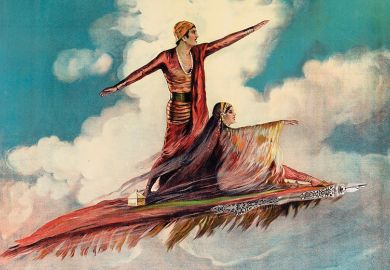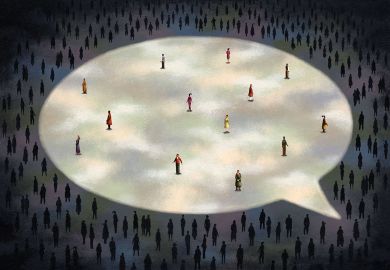The Western Canon is an enthralling summa of a lifetime of passionate reading, thinking and teaching, and I am happy to join its admirers - to be, as Harold Bloom himself would put it, a "fierce Bloomian". It has the sweep, the energy, the gusto (Hazlitt's word), the depth, the idiosyncrasy, the "strangeness" that Bloom finds in the many great writers he describes so ardently. If literature is an "ongoing contest" for survival, so is literary criticism, and I would be prepared to put money on this book's entry into the canon of enduring critical works - partly because of its wisdom and eloquence, partly because its stance is so excitingly combative. Reading it is like watching a titanic sports contest; each time Bloom lunges at his enemies - the "cultural materialists", the "new historicists", the feminists, "the academic pseudo-Marxists, French mock philosophers, and multicultural opponents of all intellectual standards whatsoever" - one wants to cheer. Even those enemies probably enjoy the fight, for Bloom needs them just as they need him. The fact that his book has been written, and has been widely admired, shows that "the endgame" Bloom so much fears, the return to a "Theocratic Age" in which people will retreat from the complexity and irreducibility of literature to closed and simplistic dogmas, is by no means upon us yet, even if Bloom's allies are more to be found among "the common readers" of literature than its professional teachers.
Nevertheless, Bloom's fears that "an authentic passion for reading" may depart this earth are well grounded, and his "Elegiac Conclusion" is sobering. The relentless "proliferation of fresh technologies for distraction" are, as he half admits, the greater threat, but are not, for his purposes, an enemy as human or dotty as the "six branches of the School of Resentment". Our best hope lies, I feel, in the sheer, passive boringness of the electronic media (surely, in time, we will tire of them?) and our already well-advanced loss of faith in the ideologies that Bloom attacks. As he says: "Religion, science, philosophy, politics, social movements: are these live birds in our hands or dead, stuffed birds on the shelf? When our conceptual modes abandon us, we return to literature, where cognition, perception, and sensation cannot be wholly disentangled."
As one who has spent the past 20 years studying and interpreting a non-western literature, I found myself constantly asking as I read Bloom's book why the "canon" has to be "western". He is really concerned with universal literary values. Why should not The Tale of Genji, say, be in the canon, especially since as translated both by Arthur Waley and Edward Seidensticker it has undoubtedly entered western consciousness? I am not clear what Bloom's criterion is for the non-western works he does include in his lists at the end of the book. If (from ancient India) the Mahabharata, the Bhagavad-Gita and the Ramayana get in, why not Kalidasa, whose Sakuntala, as translated into English by Sir William Jones and then into German (from Jones) by Georg Forster, made a deep impression on Goethe and his German Romantic successors? Indeed, the Mahabharata cannot really be said to have entered "the western canon" until Peter Brook dramatised it, and the Ramayana has not yet touched it at all.
I can see two main reasons why Bloom insists on sticking to the notion of a "western canon". One is that he is really writing about "the American canon", the works both European and American that have come to mean most to American readers and writers. Although I feel encouraged by Bloom's ecstatic advocacy of Whitman and Emily Dickinson to look at their poetry again, there are many writers in the American section of his "Canonical Prophecy" that I cannot imagine ever working round to. The second reason may be that he restricts himself to works that are either accessible through English translation or are written in English. Hence the inclusion of Naipaul, Narayan, Rushdie and Jhabvala, and 17 writers from Africa and the Caribbean, in his prophetic list.
By this latter criterion, he excludes many Middle Eastern, South Asian, South-east Asian and Far Eastern writers who have consciously connected themselves to the western canon to some extent. Is there a serious writer anywhere in the world now for whom Shakespeare is not "the horizon beyond which, at present, we do not see"? (Emerson's words). The other pivotal figure in Bloom's canon - Dante - may not have conquered Asia so thoroughly, but at least half of the 26 writers Bloom discusses are soldiers in the western literary army that has.
If a non-western writer connects himself with the western canon, I see no reason why, through translation (if it is well done) he or she should not join the canon: making it not "the western canon" but the universal canon of great literature. Translation is necessary, for without it such writers cannot extend influence beyond their own languages. To join the canon, Bloom argues, you must influence as well as be influenced by your fellow members. (The only exceptions to this two-way rule are older Asian works uninfluenced by the West. Like Homer and the Old Testament, they can, through translation, influence the canon without being influenced by it.) I do not believe Bloom has anything to fear from this. He is suspicious of "multiculturalism" - and rightly so - when it promotes second-rate literature simply because it has been written by non-whites. ("The idea that you benefit the insulted and injured by reading someone of their own origins rather than reading Shakespeare is one of the oddest illusions ever promoted in our schools.") But the admission of the truly great writers of modern Asia might healthily displace some of the more dubious entrants to Bloom's "Canonical Prophecy". Looking at that surprisingly long and liberal list, I suspect Bloom is rather a soft touch. So gargantuan (Falstaffian?) is his literary appetite that even the multiculturalists might persuade him to consume still more, if they tried hard enough.
What they would not be able to do is shift him from his fundamental belief in the primacy of "aesthetic value" or "aesthetic dignity". He is extremely open- minded about what makes a writer "strong", but he is uncompromising about the need for that strength, even if it cannot be defined, merely experienced through "confronting greatness" in the solitary act of reading. Since literature does not, in his view, create either better people or better societies, he can be generous about writers who spout nonsense, provided they are "aesthetically strong". Goethe's Faust Part Two is great, even if it is unintelligible; Walt Whitman is the "Center of the American Canon", despite his auto-erotic solipsism; Freud is canonical, even if (among other lunacies) he fell for the theory that the earl of Oxford wrote Shakespeare's plays; Finnegan's Wake is "the only authentic rival our century has produced for Proust's In Search of Lost Time" even if, like Spenser's The Faerie Queene, it will be read, "for the rest of time, by only a small band of enthusiastic specialists". This is where many common readers will part company with Bloom, as will many Asian writers who have learned much from Shakespeare, Wordsworth, Dickens or Tolstoy. Where they and the common reader will remain united with him is in the realm of feeling - that intensity and purity of feeling that is typical of writers who have had to create and hold a readership less sophisticated than most western writers have been able to assume.
And common readers in Asia and Africa, for whom books are still an infinitely precious liberation from poverty or provincialism, will understand better than their present-day western counterparts precisely what Bloom means when he says: "I cannot bear to be elegiac about Dr Johnson, my hero since boyhood", or "When I am alone and read aloud to myself, it is almost always Whitman, sometimes when I desperately need to assuage grief." Bloom may have his enemies, but he also has - not least in those lands that the multiculturalists would like him to remember - many unknown friends.
William Radice is a translator and lecturer in Bengali at the School of Oriental and African Studies, University of London.
The Western Canon:: The Books and School of the Ages
Author - Harold Bloom
ISBN - 0 333 64813 7
Publisher - Macmillan
Price - £20.00
Pages - 578pp



